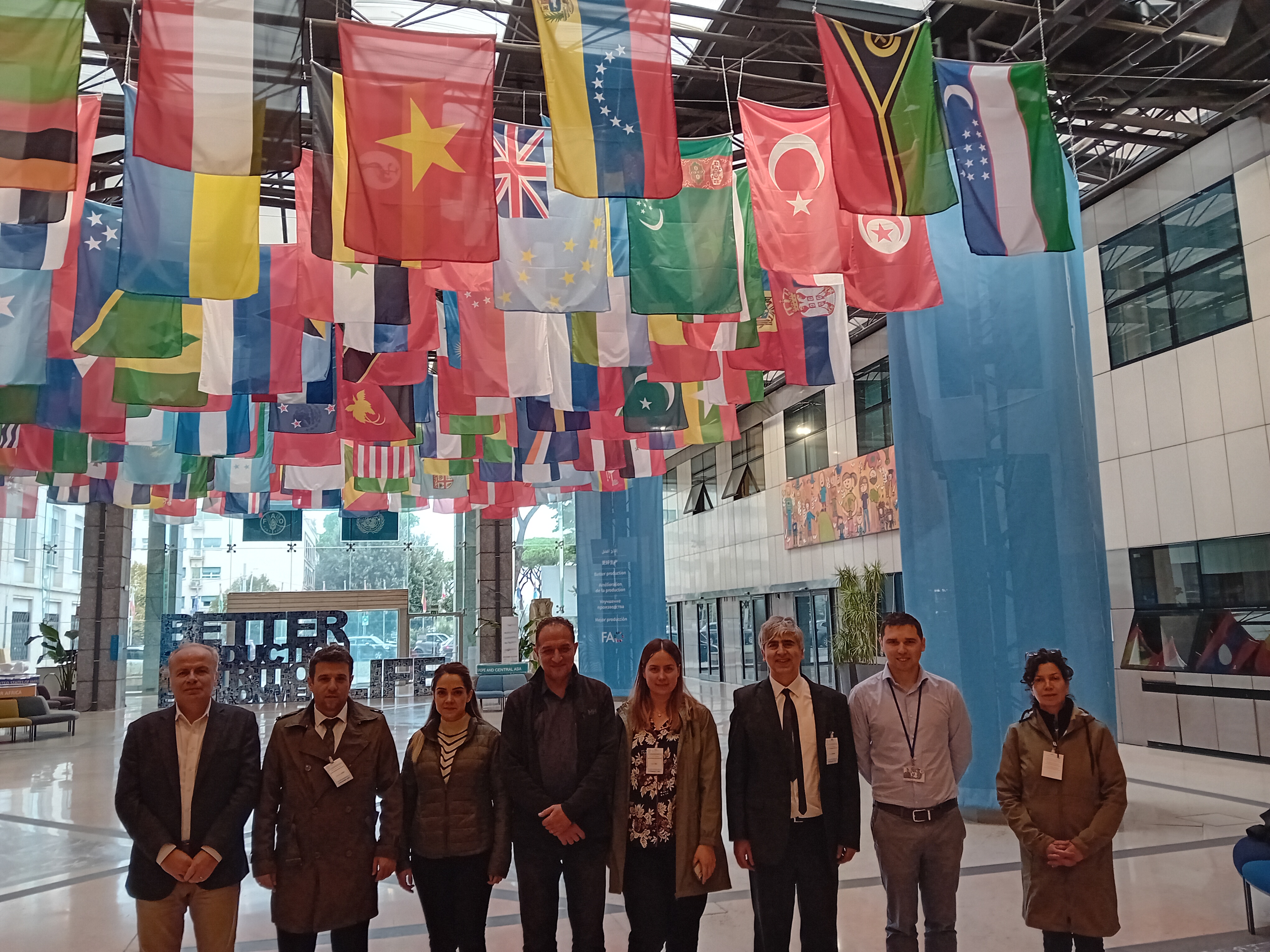FAO and Turkish delegation collaborate on combating persistent organic pollutants
On 10 November 2023, the Food and Agriculture Organization of the United Nations (FAO) played host to a Turkish delegation comprising representatives from the United Nations Development Programme (UNDP) Türkiye Country Office and the Ministry of Environment, Urbanization, and Climate Change Türkiye at its headquarters in Rome. The purpose of this visit was to foster collaboration and knowledge-sharing between FAO's Global Soil Partnership (GSP), the FAO’s Plant Production and Protection Division (NSP) and the Turkish delegation. The primary focus was to address the challenges posed by Persistent Organic Pollutants (POPs) and exchanging experiences and best practices in managing and raising awareness about these pollutants.

The UNDP Türkiye project, titled 'Identification and Remediation of Contaminated Sites with Persistent Organic Pollutants (POPs),' co-financed by the European Union and the Republic of Türkiye and implemented by UNDP in partnership with the General Directorate of Environmental Management of the Ministry of Environment, Urbanization and Climate Change since 2019, aims to protect the environment and enhance the quality of life by mitigating the adverse effects of POPs and other hazardous substances.
The NSP Division, renowned for its expertise in working with the Rotterdam and Stockholm Conventions, as well as POPs management, joined forces with the GSP, which has a wealth of experience in raising awareness about POPs pollution in soil through publications such as Soil Pollution: A Hidden Reality, and the Global Assessment of Soil Pollution.
During this three-hour workshop/meeting, representatives from the GSP and NSP teams engaged with the Turkish delegation on various crucial topics related to POPs:
- Standards and Regulations: The discussion delved into standards and regulations, particularly focusing on the Basel, Rotterdam, and Stockholm (BRS) Conventions.
- Monitoring and Evaluation: The teams explored the monitoring and evaluation of Highly Hazardous Pesticides (HHP) and obsolete pesticides included in the Stockholm Convention.
- Awareness-raising and Communication: FAO tools for raising awareness and communicating information about POPs chemicals were highlighted as essential components of effective management strategies.
 The collaborative effort underscored the importance of establishing partnerships for knowledge exchange. The Turkish delegation and the FAO divisions mutually recognized the significance of leveraging FAO's available tools on POPs chemicals. This partnership is expected to be particularly beneficial in the ongoing project, 'Identification and Remediation of Contaminated Sites with POPs,' and holds promise for future collaborative initiatives between the two organizations.
The collaborative effort underscored the importance of establishing partnerships for knowledge exchange. The Turkish delegation and the FAO divisions mutually recognized the significance of leveraging FAO's available tools on POPs chemicals. This partnership is expected to be particularly beneficial in the ongoing project, 'Identification and Remediation of Contaminated Sites with POPs,' and holds promise for future collaborative initiatives between the two organizations.
In conclusion, the workshop not only facilitated knowledge transfer but also provided an opportunity for the Ministry of Environment, Urbanization, and Climate Change Türkiye to learn from FAO's international experience in managing and combating POPs. The successful collaboration sets the stage for continued cooperation in addressing environmental challenges and promoting sustainable soil management practices on a global scale.
